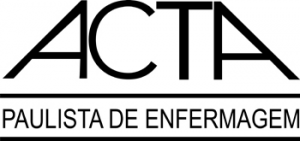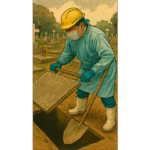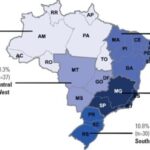By Kelly Pereira Coca and Karla Oliveira Marcacine, professors, Universidade Federal de São Paulo, Escola Paulista de Enfermagem, SP, Brazil
The World Health Organization (WHO) recommends exclusive breastfeeding during the first six months of children’s lives, and supplemented up to the age of two (WHO, 2003). This practice is considered the best option for newborn nutrition and promotes immunological protection against respiratory diseases and gastrointestinal infections, in addition to creating an emotional bond between mother and child (VICTORA, et al., 2016). Despite this recommendation and the benefits of breastfeeding, breastfeeding rates around the world are still deficient (ROLLINS, 2016), and there are different circumstances that interfere with this practice. Women may want to breastfeed, but run up against social, cultural and political barriers throughout the puerperal pregnancy cycle, which negatively affects starting up and continuing (BROWN, 2017).
The article “Breastfeeding difficulties: analysis of a service specialized in breastfeeding,” published in Acta Paulista de Enfermagem (vol. 31, no. 4), sought to understand these factors. Based on a retrospective cohort of 12 years, it assessed the association between types of breastfeeding and the difficulties related to this practice among women and children receiving assistance in an outpatient unit specialized in breastfeeding. The service is recognized by the International Board of Lactation Consultant Examiners (IBCLC). A pioneer in this area, it has been offering free assistance since 2004 to puerperal women who want to breastfeed, by helping identify difficulties early on and promoting exclusive breastfeeding, which consequently improves the national rates of this practice.
Data from 1,673 women showed that low milk production and incorrect breastfeeding techniques were perceived as the main difficulties in the first postpartum month. Level of maternal education, the women’s conjugal situation, previous breastfeeding experience, inverted nipple shape, late skin-to-skin contact with the child immediately after the delivery, use of pacifiers and child’s age were also associated with early weaning.
The findings help provide a better understanding of the most frequent breastfeeding problems, so that nurses can focus their care on the post-discharge period, to avoid early weaning. The study also indicated the need for further research that promotes changes based on effective mother-child care interventions for successful breastfeeding.
References
BROWN, A. Breastfeeding as a public health responsibility: a review of the evidence. J Hum Nutr Diet [online]. 2017, vol. 30, no. 6, pp. 759-770, eISSN:1365-277X [viewed 14 December 2018]. DOI: 10.1111/jhn.12496. Available from: https://www.ncbi.nlm.nih.gov/pubmed/28744924
ROLLINS, N. C., et al. Lancet Breastfeeding Series Group. Why invest, and what it will take to improve breastfeeding practices? The Lancet [online]. 2016, vol. 387, no. 10017, pp. 491-504, ISSN: 0140-6736 [viewed 14 December 2018]. DOI: 10.1016/S0140-6736(15)01044-2. Available from: https://www.thelancet.com/journals/lancet/article/PIIS0140-6736(15)01044-2/fulltext
VICTORA, C. G., et al. Lancet Breastfeeding Series Group. Breastfeeding in the 21st century: epidemiology, mechanisms, and lifelong effect. The Lancet [online]. 2016, vol. 387, no. 10017, pp. 475-490, ISSN: 0140-6736 [viewed 14 December 2018]. DOI: 10.1016/S0140-6736(16)30536-0. Available from: https://www.thelancet.com/journals/lancet/article/PIIS0140-6736(16)30536-0/fulltext
WORLD HEALTH ORGANIZATION. Global strategy for infant and Young child feeding. Geneva: WHO, 2003.
To read the article, access it
CARREIRO, J.A., et al. Breastfeeding difficulties: analysis of a service specialized in breastfeeding. Acta paul. Enferm [online]. 2018, vol. 31, no. 4, pp. 430-438, ISSN: 0103-2100 [viewed 00 December 2018]. DOI: 10.1590/1982-0194201800060. Available from: http://ref.scielo.org/zrqyhd
External link
Acta Paulista de Enfermagem – APE: <http://www.scielo.br/ape>
Como citar este post [ISO 690/2010]:



















Recent Comments